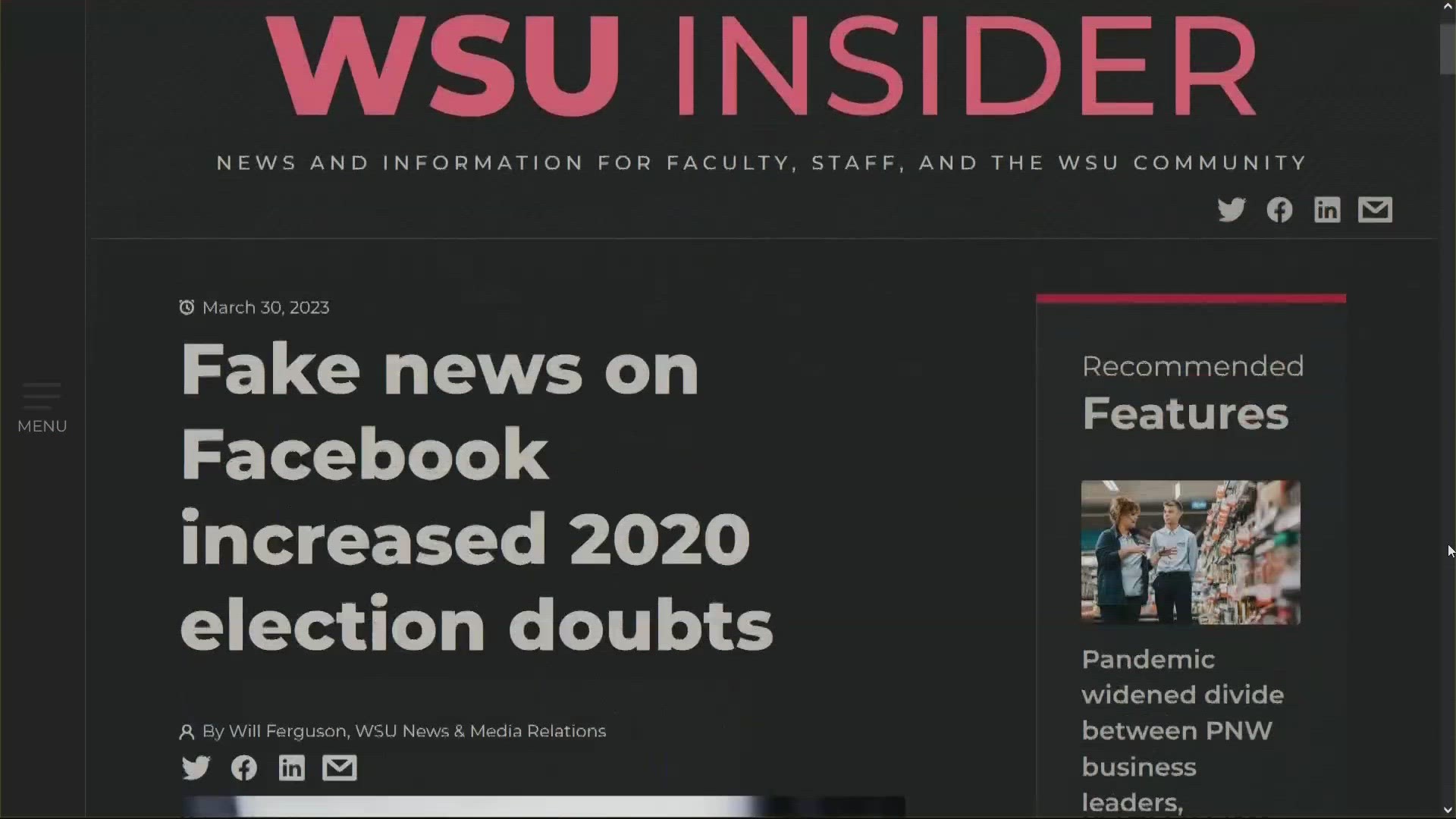PULLMAN, Wash. — When it comes to fake news about the 2020 election, users of Facebook were most likely to be reading in than users of any other social media platform. That's the finding of a recent study out of Washington State University.
Leading up to and right on through November of 2020, information was flying and plenty to choose from was fake.
It's a big concern for people administering one of the key components of our democracy, our elections.
“Misinformation and disinformation are the biggest threat to the election that we don't have control over,” said Multnomah County Elections Director Tim Scott at the time.
Now, results from a new study by WSU published in Government Information Quarterly shows not Twitter, but Facebook was by far the main social media website where people were likely to read fake news.
The study relied on three online surveys: two before the presidential election between incumbent Donald Trump and challenger Joe Biden, and one, after the election, of actual voters.
It indicates that fake news consumption and political persuasion were the primary forces driving doubt in the integrity of the vote counting process. The vast majority of doubters identified as conservatives and those conservatives were more likely to find fake news through Facebook, than other people.
The reason, Facebook's system for getting users to come back for more.
“The algorithms were used to confirm people’s biases that they wanted to believe and the more they read these bias-reinforcing websites the more likely they were to feel like, ‘yeah, I believe it because I’m reading it in these news articles,” said WSU Associate Professor and Study Co-Author Robert Crossler.
Crossler said those who relied on Facebook to feed their news diet, often got disinformation from stories not connected to mainstream news media sources. That sowed doubt in the election process, as opposed to those who went directly to established news sites.
One could argue that it is part of the disinformation landscape leading up to January 6 and the attack on the U.S. Capitol.
The key takeaway from the study, according to Crossler, is that people are best served finding accurate information by taking the time to go directly to news sources, instead of allowing social media to information for you.
“I would encourage people who primarily get their information from Facebook to look for other sources of information for news, so kind of taking control of where you're getting news would be a good recommendation.”

